ASEAN
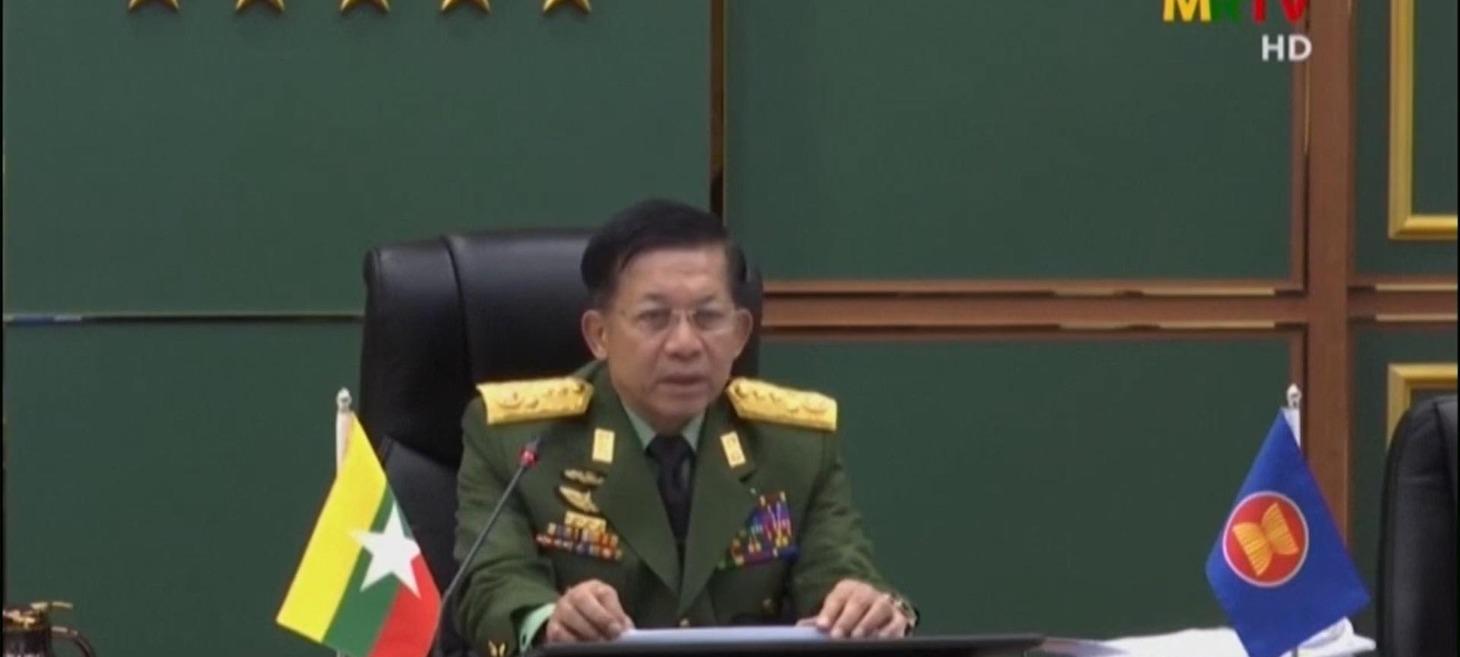
Despite ban, regime officials continue to represent Myanmar at ASEAN meetings
Despite ASEAN's decision to exclude Myanmar's military regime from official meetings, junta officials continue to represent Myanmar at various ASEAN gatherings. This defiance of the regional bloc's policy has sparked concerns about ASEAN's effectiveness in addressing the crisis in Myanmar. The junta's persistence in sending representatives underscores its determination to maintain international legitimacy despite widespread condemnation of its rule. This situation highlights the ongoing challenges in implementing ASEAN's decisions regarding Myanmar and raises questions about the organization's ability to enforce its policies effectively.
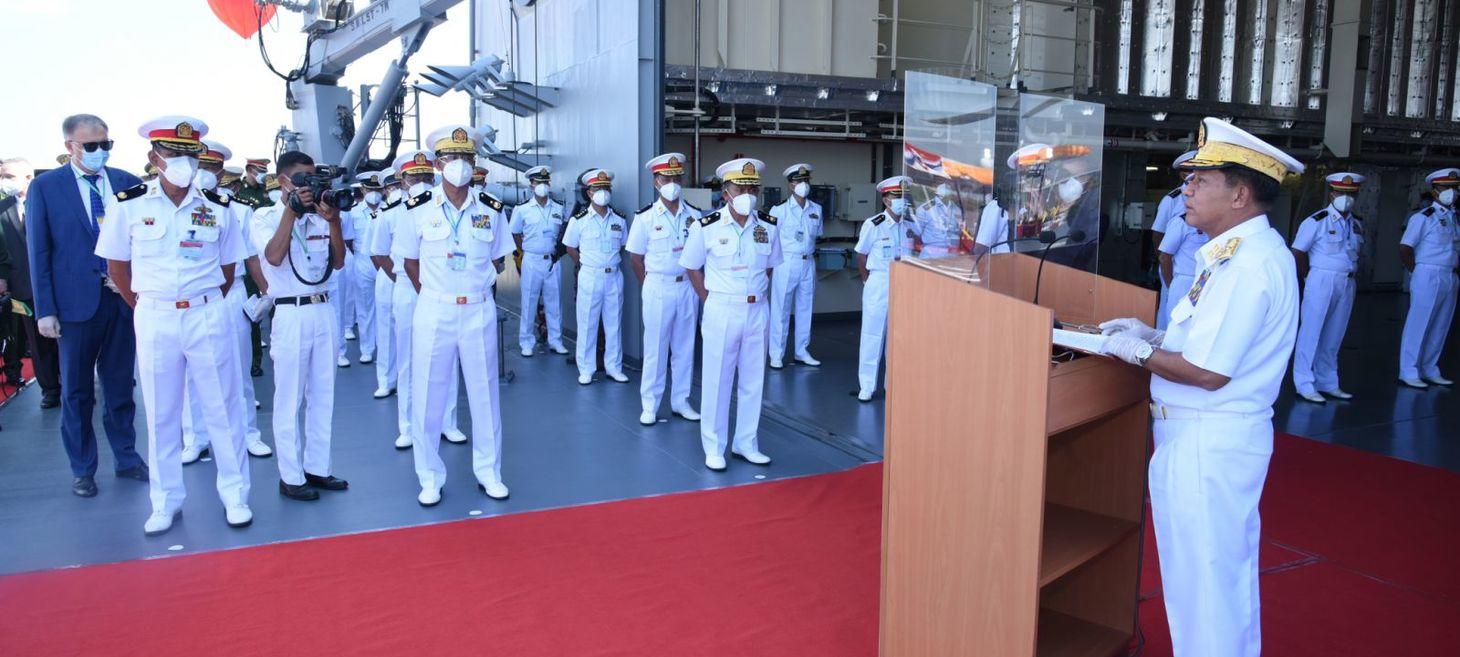
SE Asian navy officers gather in Naypyitaw for ASEAN meeting
Senior navy officers from eight Southeast Asian countries gathered in Naypyitaw for the 18th ASEAN Navy Chiefs' Meeting, coinciding with the annual ASEAN Summit in Laos. Most attendees were deputy commanders, except for Singapore, which sent no representative. Indonesia and the Philippines, critical of Myanmar's junta, dispatched military attachés instead of top officials. This meeting highlights ongoing diplomatic efforts despite ASEAN's ban on Myanmar's military regime from official gatherings. The junta continues to represent Myanmar internationally, challenging ASEAN's policy and raising questions about the bloc's effectiveness in addressing the crisis in Myanmar.
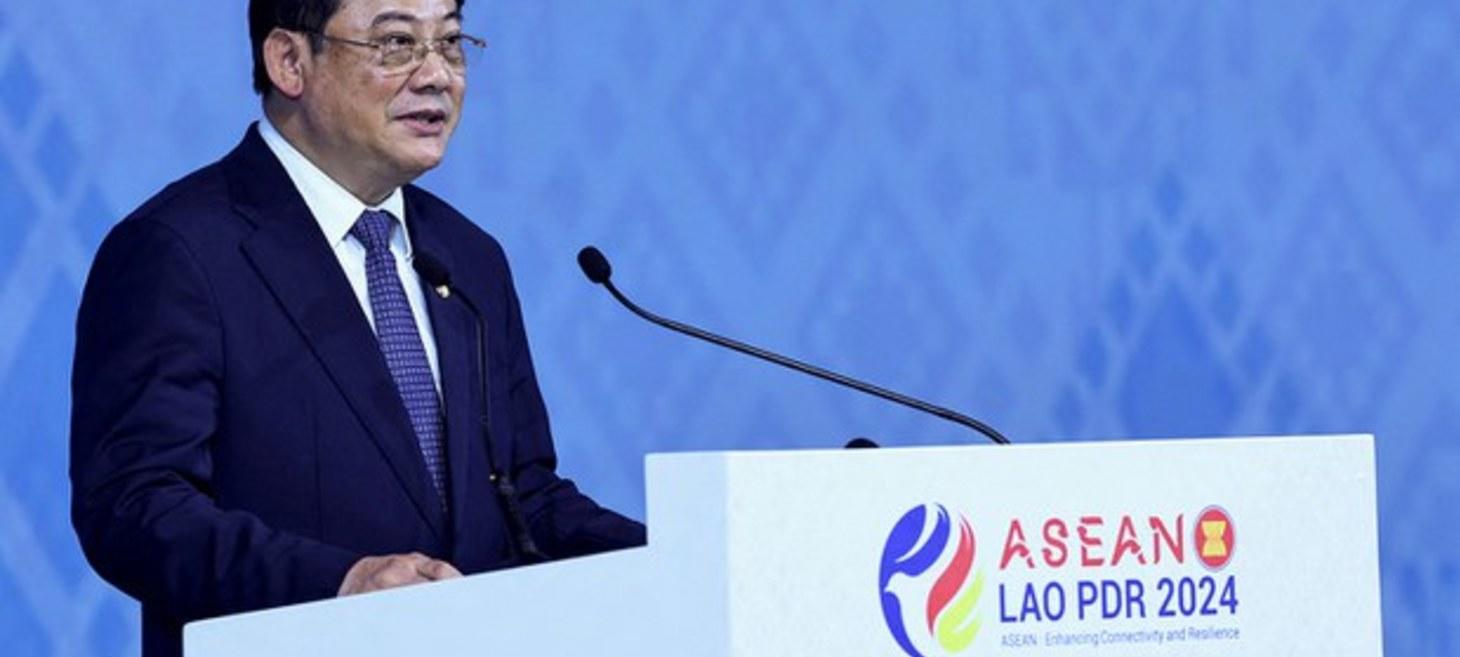
ASEAN chair calls for end of Myanmar war, but rebels say that depends on junta
Laos, as ASEAN chair, has called for an end to the war in Myanmar and for inclusive peace talks to resolve the civil war that has raged since the 2021 military coup. However, armed rebel groups dismissed this appeal as "unrealistic", arguing that the ruling military junta has shown no willingness to genuine dialogue. Rebel spokespeople stated that the onus is on the junta to create conditions for meaningful talks, pointing out that the military has failed to implement ASEAN's five-point consensus peace plan. They expressed skepticism about the junta's intentions, viewing recent peace offers as attempts to legitimize military rule. The situation highlights the deep divisions and mistrust between the junta and opposition forces, casting doubt on prospects for a negotiated resolution to Myanmar's ongoing conflict.
Census & Elections
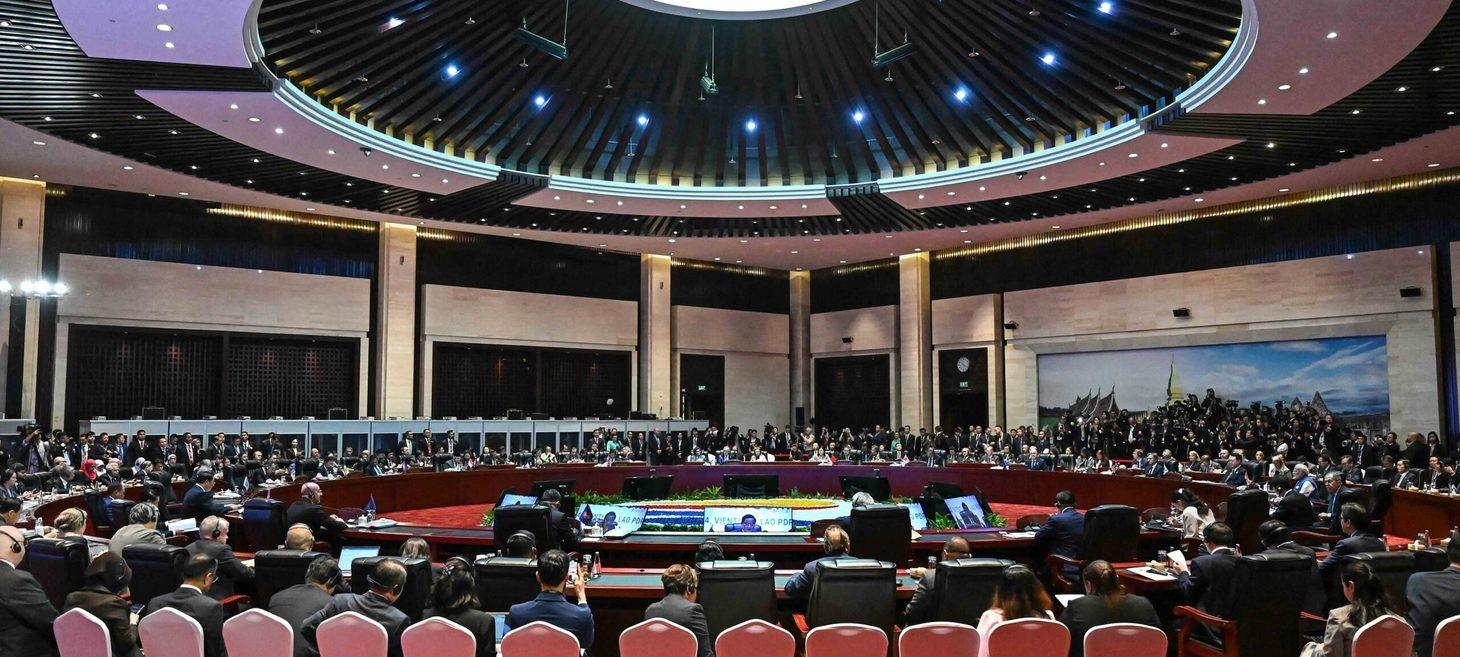
Free election under Myanmar junta ‘impossible’: US official
A United States diplomat has stated that it is "impossible to imagine" a free election taking place in Myanmar under the current military junta, which seized power in 2021 after alleging electoral fraud. Despite the junta's plans to hold new elections, backed by China, the US official emphasized that any such election would likely only reinforce the military's grip on power. The junta has been responsible for widespread arrests and killings and has banned political parties in its crackdown on dissent. The ongoing conflict and loss of territory to ethnic armed groups and newly formed "People’s Defence Forces" further complicate the prospect of conducting free and fair elections in the country.
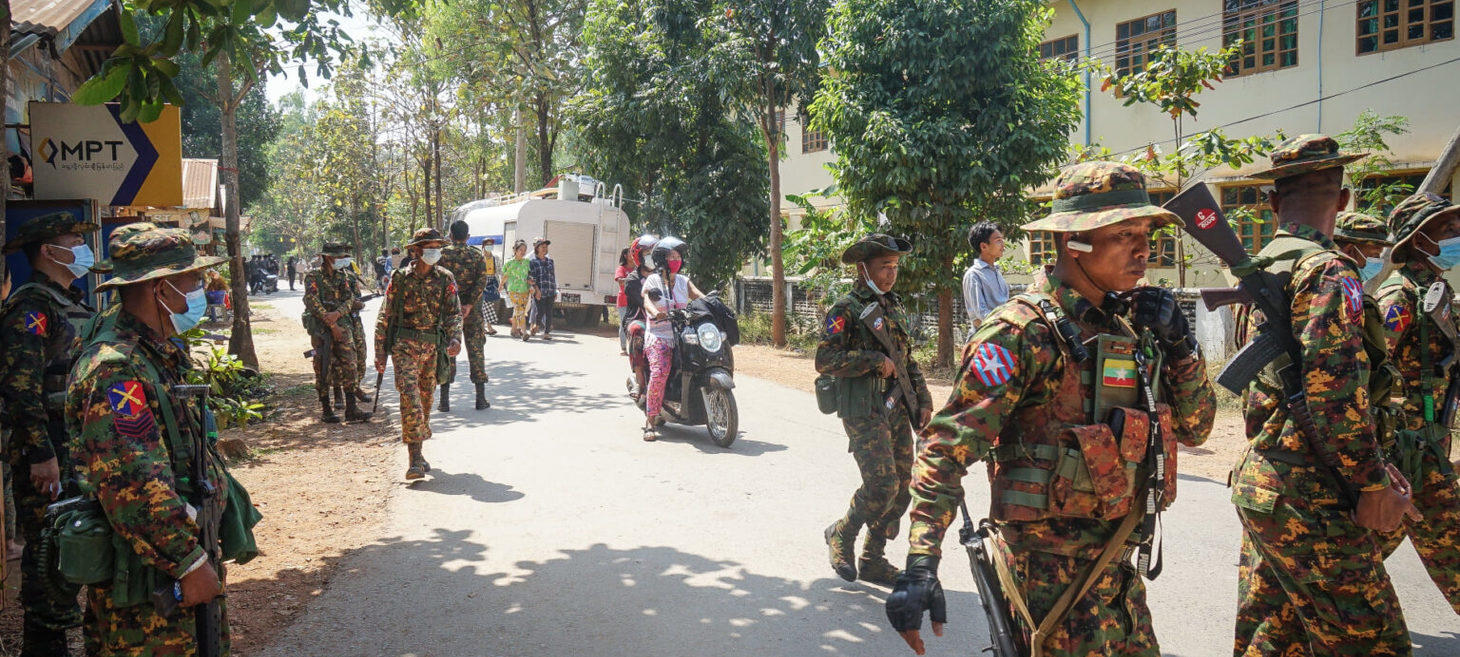
Three junta soldiers killed while accompanying census takers in eastern Myanmar
In Karen State's Hpa-an Township, three Myanmar junta soldiers were killed while providing security for census takers, marking the deadliest attack on the regime's census efforts to date. The incident occurred near a monastery in Win Sein village when a shoulder-fired rocket launcher struck their vehicle. The attack was carried out by forces associated with Brigade 1 of the Karen National Union (KNU), who reported no casualties on their side. While at least two others were injured, it remains unclear if any civilian census takers were among the casualties. This attack underscores the ongoing resistance and violence faced by the junta in Myanmar.
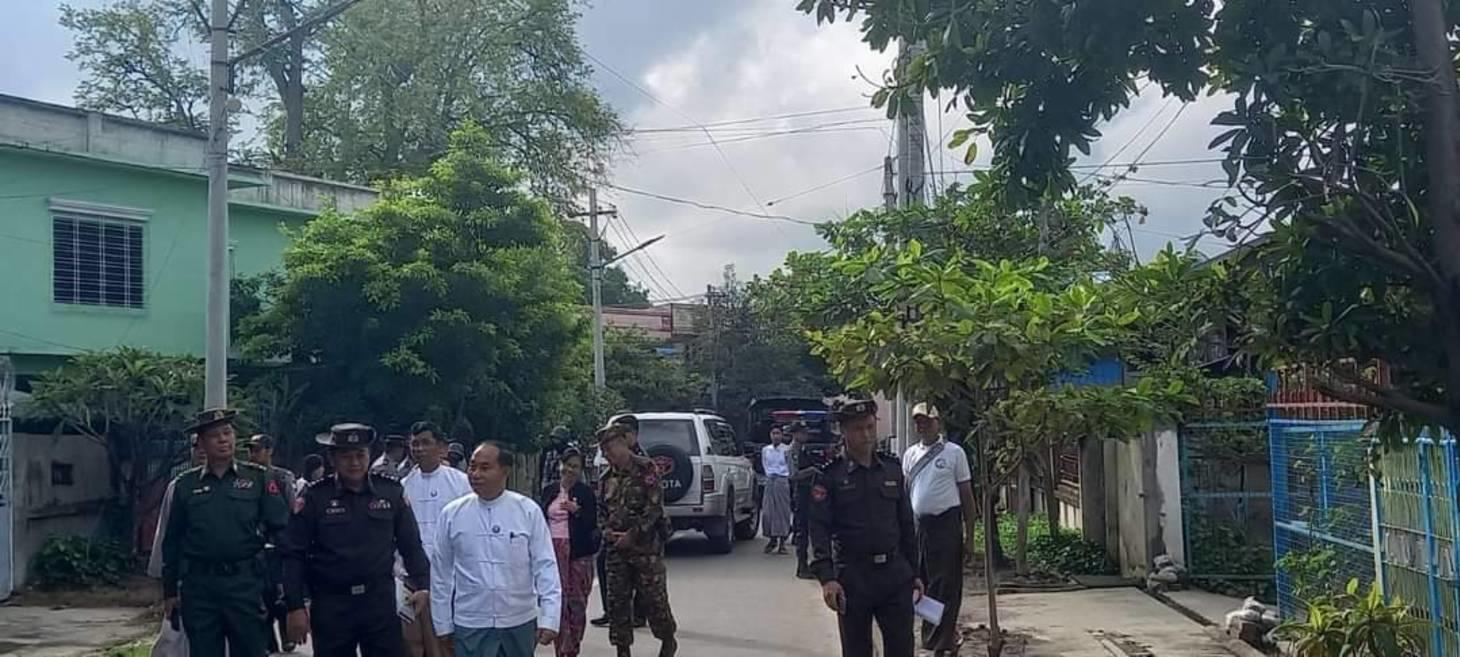
As Myanmar’s census draws to a close, observers question its accuracy
Myanmar's military junta is conducting a nationwide census ahead of planned elections next year, but experts argue the data is inaccurate due to ongoing civil war, displacement, and fear among residents. Ethnic armed groups and opposition forces oppose the election, calling it a sham designed to legitimize military rule. The census, which began on October 1st and runs until October 15th, involves over 40,000 officials targeting an estimated population of 56 million. However, many residents are reluctant to cooperate, intentionally withholding personal information or providing false answers out of fear of persecution. This situation raises doubts about the validity of the resulting voter lists and the legitimacy of any upcoming election. The junta's actions come amid ongoing efforts to secure international recognition, including sending a representative to the ASEAN summit, highlighting the complex political landscape and conflicting views on Myanmar's path forward.
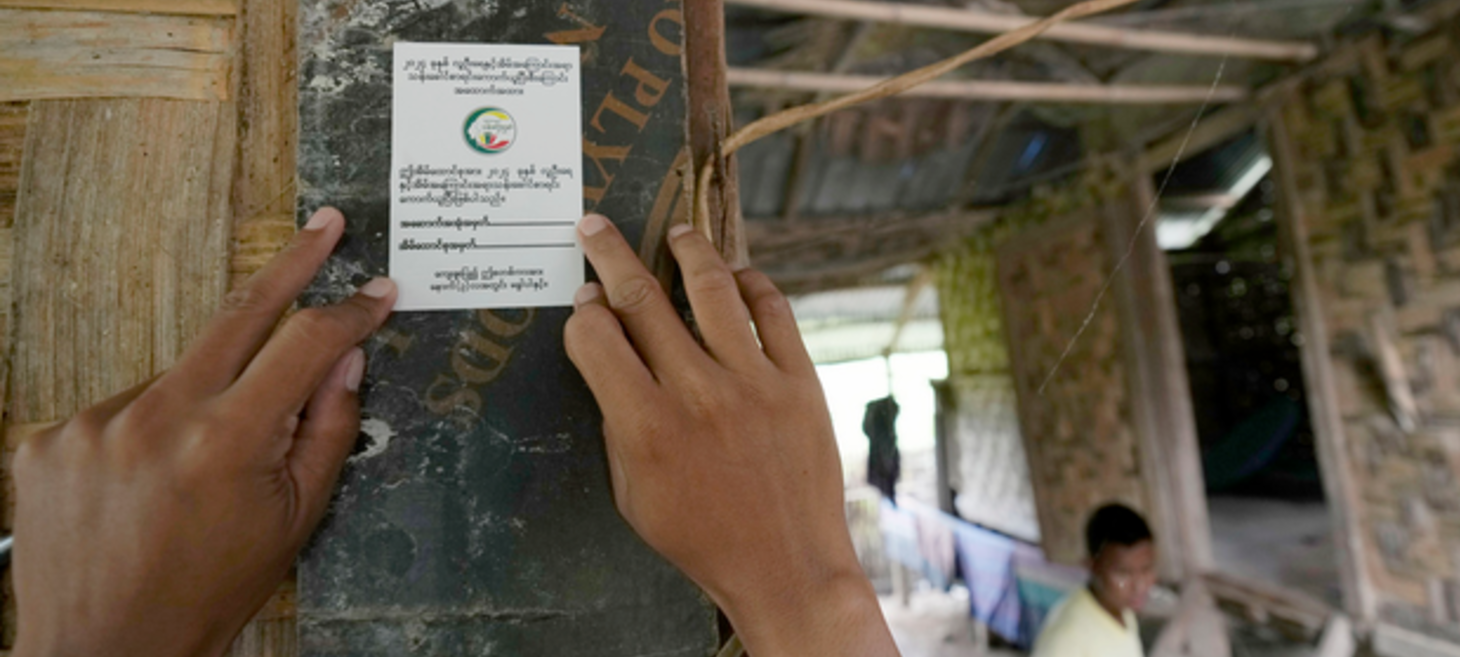
As Myanmar’s census draws to a close, observers question its accuracy
Myanmar's military junta is conducting a national census from October 1-15, despite ongoing civil war and widespread opposition. The census aims to create voter lists for planned elections next year, which critics argue will be illegitimate. Many residents are reluctant to participate due to fear of persecution and concerns about privacy. Observers believe the data will be inaccurate given the conflict situation and intentional misinformation from respondents. Ethnic armed groups oppose the election, viewing it as an attempt to legitimize military rule. The junta's efforts coincide with its participation in the ASEAN summit, seen as a bid for international recognition of its planned election. Critics argue that ASEAN's approach prioritizes member states' interests over the will of the Myanmar people, potentially prolonging the junta's rule.
Conflict
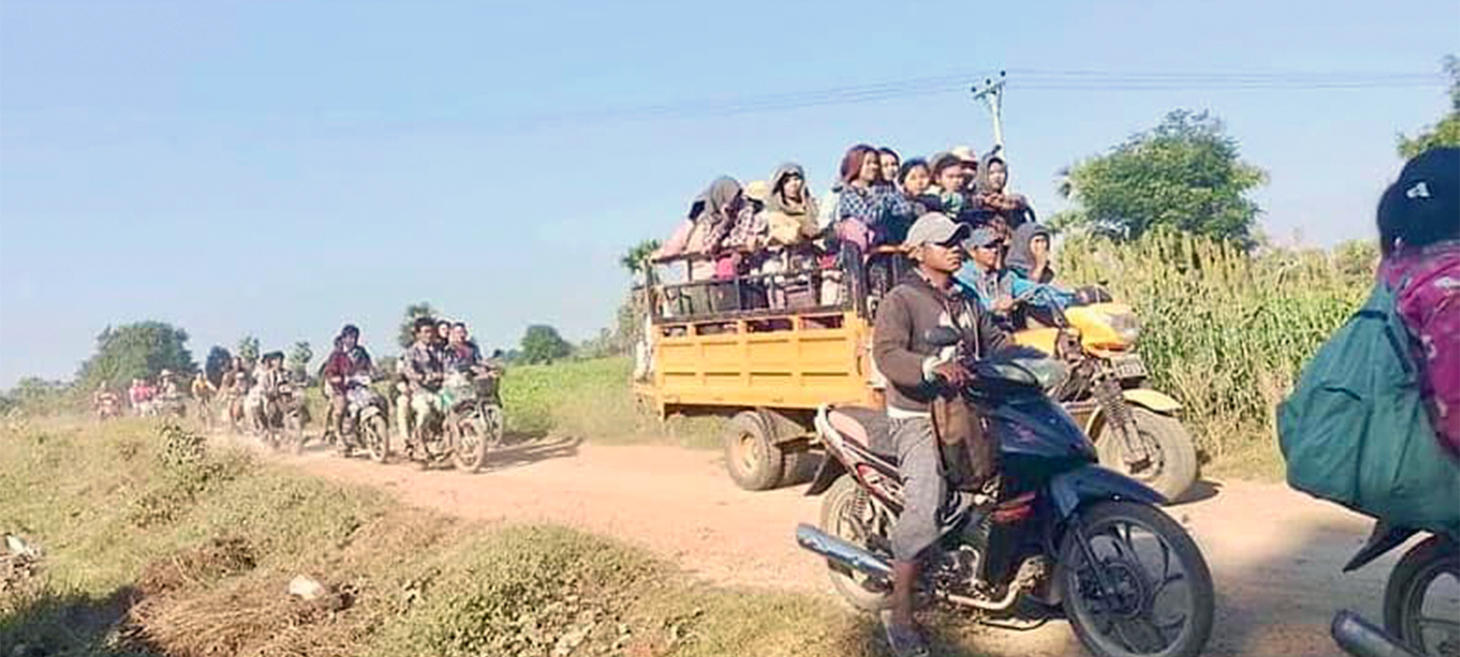
Myanmar Junta and Allied Militia Maraud Through Saigang’s Budalin
The Myanmar military junta, along with an allied militia, has been conducting violent operations in the Budalin Township of Sagaing Region, resulting in the destruction of villages and displacement of residents. These attacks are part of a broader campaign by the junta to suppress resistance in the region, which has seen significant opposition from local defense forces. The military's actions have led to widespread fear and instability, with many villagers fleeing their homes to escape the violence. This situation highlights the ongoing conflict and humanitarian crisis in Myanmar as the junta continues to exert control through force and intimidation.
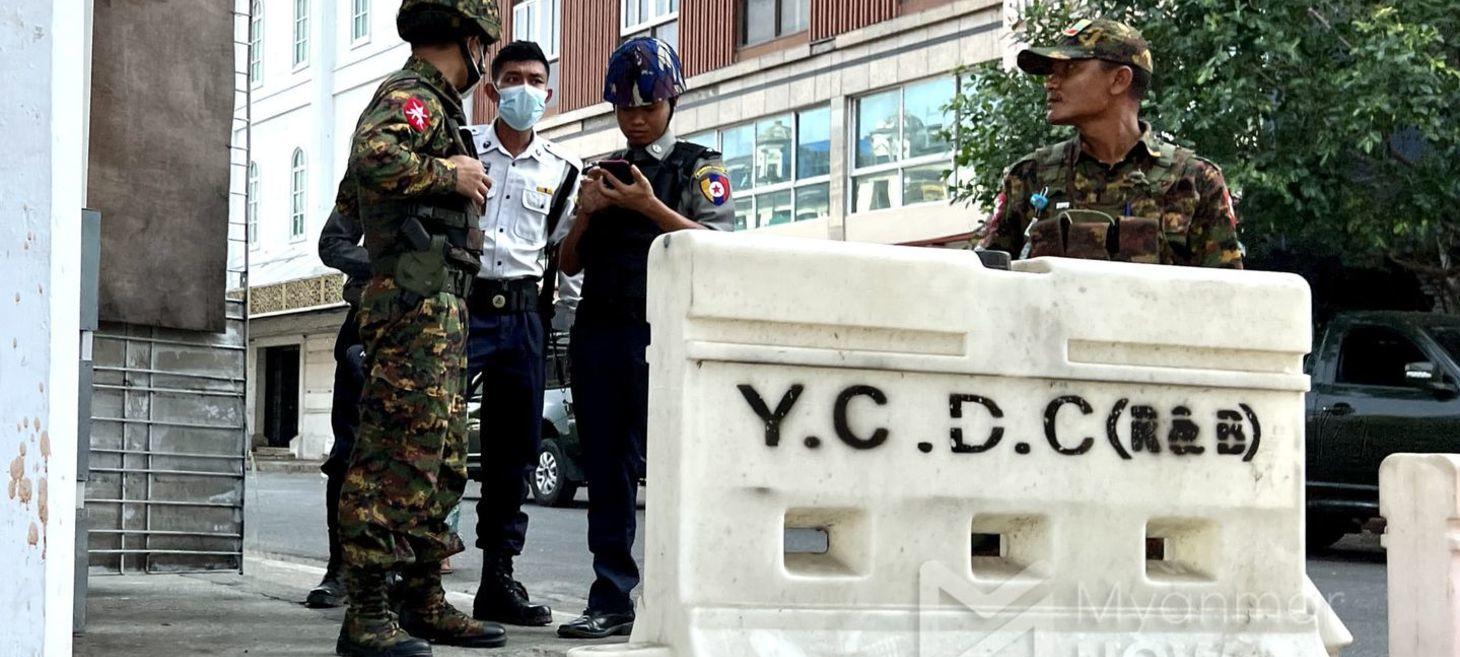
Junta traffic checkpoint officer shot on crowded street in Mandalay
A deputy traffic inspector in Mandalay's Pyigyitagon Township was shot by unidentified assailants while leading a team of junta personnel at a road checkpoint. The incident occurred on a busy street as the squad, which included police officers, traffic police, and Pyu Saw Htee militia members, was conducting vehicle searches. Initially mistaken for a car accident due to the commotion, it was later revealed to be a shooting, with the officer reportedly shot in the chest. The attack highlights the ongoing tensions and violence in Myanmar, where junta forces and their allies face resistance from various groups.
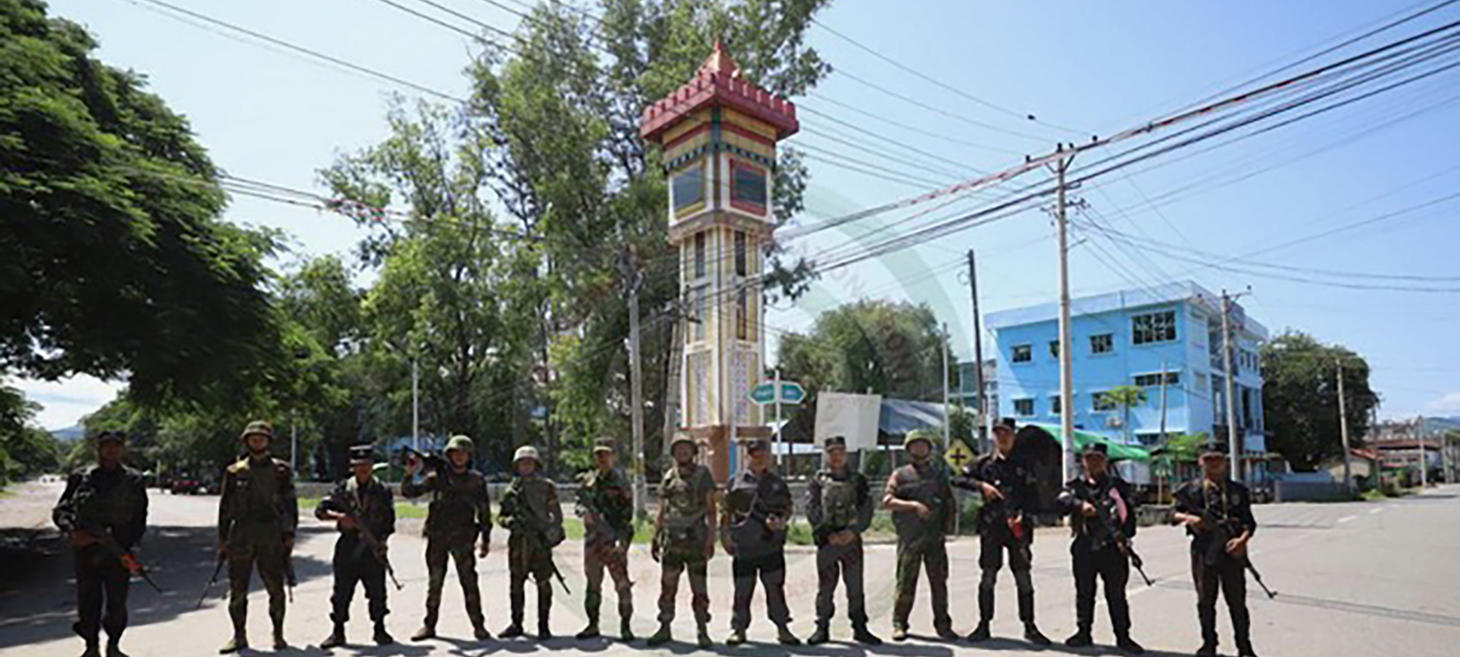
TNLA Defeats Final Myanmar Junta Base in Hsipaw Township
The Ta’ang National Liberation Army (TNLA) has successfully captured the last Myanmar military base in Hsipaw Township, northern Shan State, marking a significant victory for anti-junta forces. This takeover of the Infantry Battalion 23 base follows months of intense fighting. It completes the TNLA's control over Hsipaw, having already secured most of the town's urban areas in previous months. The capture was confirmed by TNLA spokespersons, who stated that the junta forces abandoned their posts, allowing the TNLA to take full control of the area. This development highlights the ongoing struggle and territorial losses faced by the Myanmar military in the region.
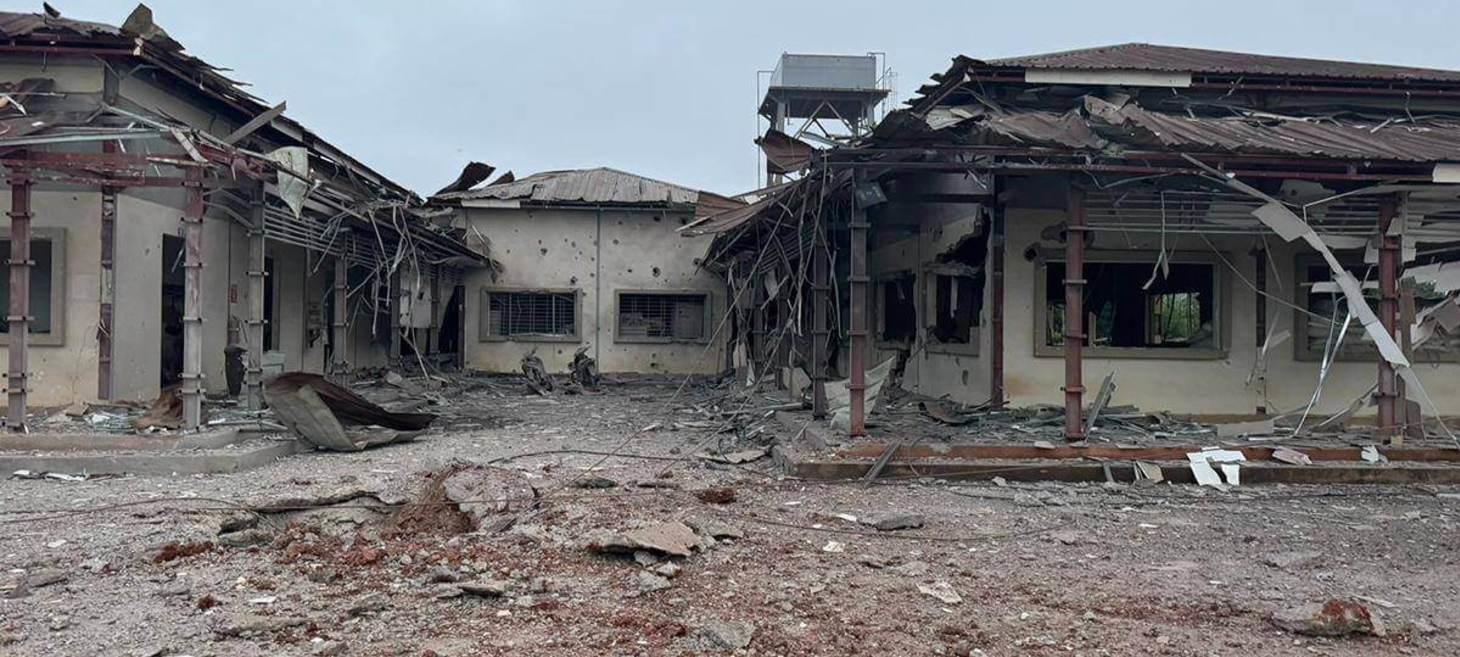
Airstrike Kills one, injures eight in Mongyai Town, Shan State
On October 9, 2024, a junta airstrike hit a sugar factory compound in Mongyai Town, northern Shan State, killing one person and injuring at least eight others. The attack targeted guesthouses and worker dormitories, destroying buildings and causing widespread damage. Two women lost limbs in the bombing. Local residents believe the junta mistakenly targeted the area due to the presence of a Chinese factory owner, assuming it was a base for the Myanmar National Democratic Alliance Army (MNDAA). This incident follows increased tensions in the region, including junta reinforcements arriving nearby and a previous airstrike on September 29 that injured four people. The attacks have instilled fear among locals, who worry about impending conflict as the town is currently controlled by the Shan State Progress Party (SSPP) forces.
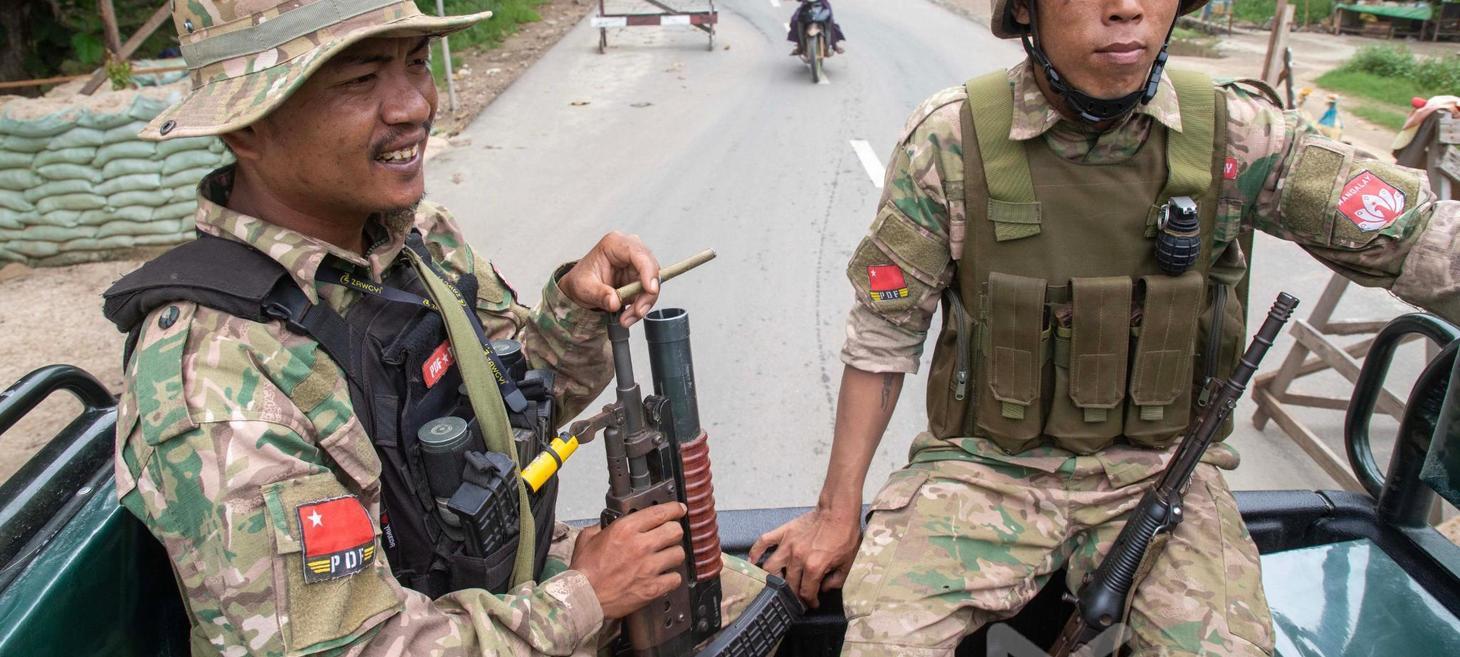
Clashes ongoing in Madaya Township as resistance pushes towards Mandalay
Clashes are ongoing in Madaya Township as resistance forces push towards Mandalay, highlighting the continued instability in Myanmar. The situation reflects the broader trend of anti-junta forces gaining ground against the military regime. This escalation of violence contradicts recent claims by the junta leader that elections will proceed as planned, suggesting a disconnect between the regime's rhetoric and the reality on the ground. The ongoing conflicts underscore the challenges facing any potential electoral process in the midst of active warfare and resistance movements across the country.
Myanmar junta ‘bombing everywhere”
The Myanmar military junta appears to be deliberately targeting civilians in its efforts to maintain power, despite recent calls for peace talks. Over three years after seizing control, the junta continues to conduct airstrikes and artillery attacks on civilian areas across the country, including Lashio, Karenni, Karen, and Rakhine states, and Sagaing, Mandalay, and Magway regions. These attacks have resulted in hundreds of civilian casualties and widespread displacement. The junta's actions contradict its claims of seeking peace, suggesting that its calls for dialogue are likely a tactical maneuver aimed at legitimizing its rule rather than a genuine attempt at resolving the conflict. This pattern of behavior indicates that the junta prioritizes maintaining power over protecting civilian lives or engaging in meaningful peace negotiations.
Crime & Narcotics
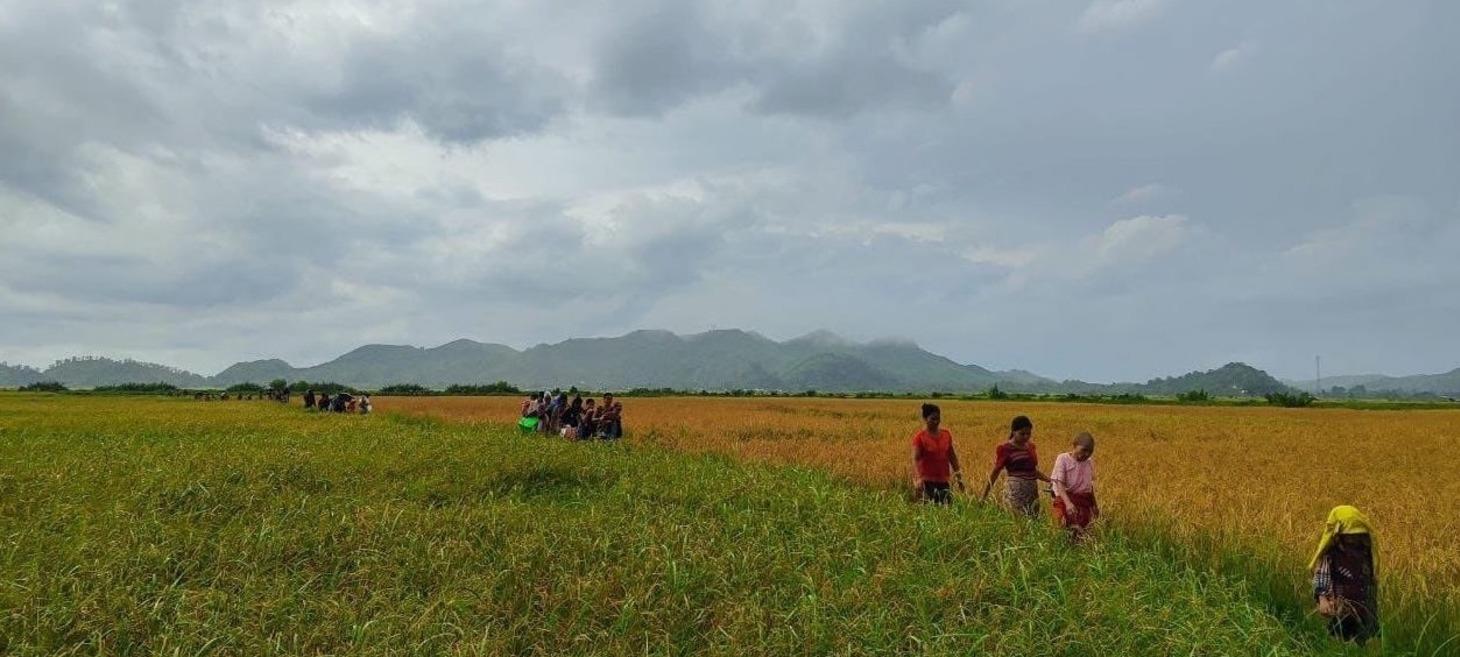
Myanmar junta personnel extort bribes from civilians fleeing Rakhine State
Residents fleeing Gwa Township in Rakhine State have reported being forced to pay exorbitant bribes at junta checkpoints while attempting to escape escalating violence. The lack of identification documents among many displaced civilians is attributed to the collapse of administrative services, as junta-appointed civil servants fled following an offensive by the Arakan Army (AA) in August. This breakdown in administration has left locals unable to obtain or update necessary documentation, exacerbating their vulnerability to extortion as they seek safety in neighboring regions.
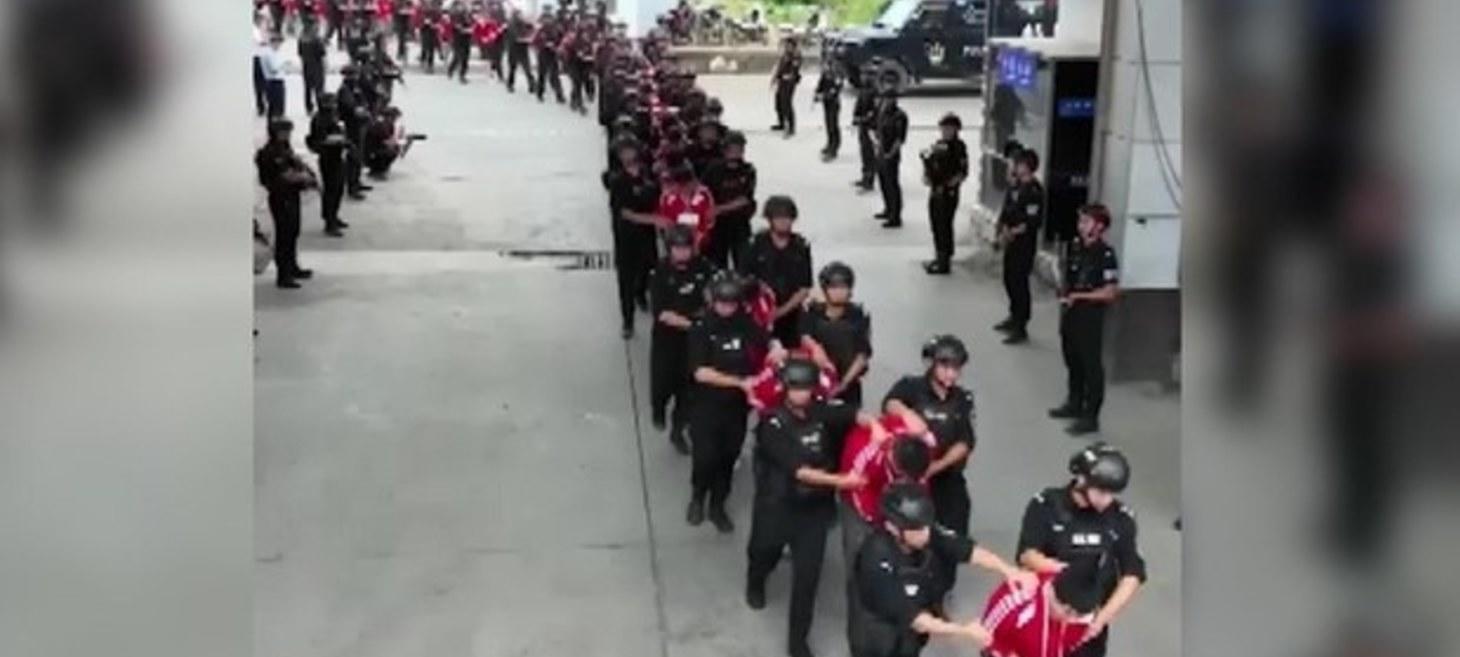
Myanmar junta charges hundreds for scamming on Chinese border
Myanmar's military junta has charged over 450 people with cybercrime after arresting them in an online scam center near the Chinese border. The arrests were part of a crackdown on fraud gangs in northeastern Myanmar's Shan state, where many scam centers are run by Chinese criminal groups. China has been pressuring Myanmar authorities to crack down on these operations, leading to the arrest of nearly 750 people, including over 240 Chinese nationals, in recent raids. The junta has charged both Myanmar and Chinese nationals under the Communications Act, which carries penalties of up to two years in prison. This marks a shift from previous practices where Myanmar citizens were often released after such arrests. The crackdown comes as China seeks to address fraud targeting its citizens, while also maintaining its strategic interests in Myanmar.
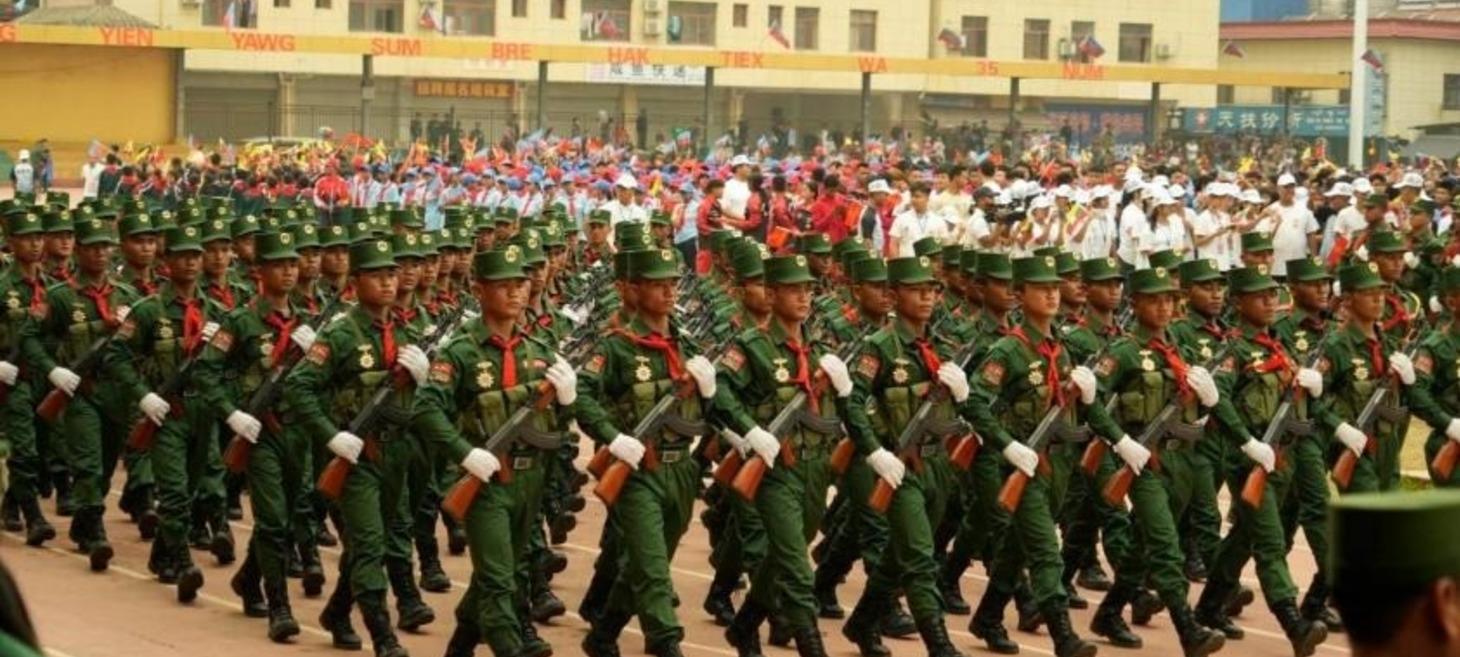
UWSA Protected Scam Centre Set up in Tangyan Township, Shan State
The United Wa State Army (UWSA) is reportedly protecting a new scam center in a remote area of Tangyan Township in Shan State, Myanmar. The scam operation, set up near Panglawng Village, is believed to be run by Chinese gangs known as "Zhapian" by locals. UWSA Brigades 318 and 713 are allegedly providing security for the scamming gangs, who have taken over areas previously controlled by the junta-aligned Manpang militia group. The scam center is located in a remote, forested area along the Thanlwin River, making it difficult to access. Locals claim the UWSA has authorized casino operations in the area, though it's likely these are actually scam centers rather than traditional casinos. The scam gangs are recruiting young locals with high salaries, exploiting the job shortage caused by ongoing fighting in the region. This development marks a shift in scam operations, which were previously concentrated in border areas but are now relocating to interior regions of Myanmar.
Economy
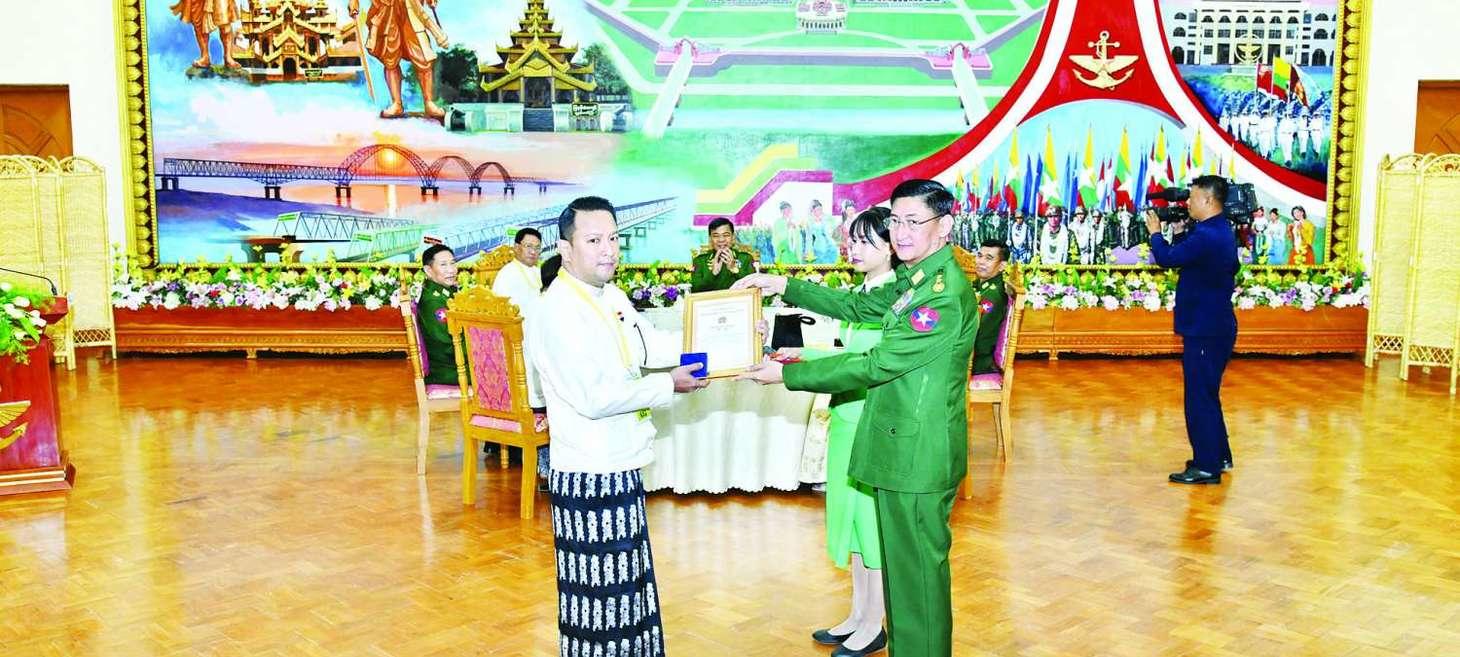
Pro-junta media group lays off hundreds of employees amid business decline
Forever Group, a major pro-junta media company in Myanmar, has laid off hundreds of employees due to financial difficulties. The company, which operates popular channels like MRTV-4 and Channel 7, has been known for promoting the military regime's agenda since the 2021 coup. Sources indicate that over 600-700 employees were let go in June and July, reducing the workforce from over 1,000 in 2023 to around 300-400. The layoffs were implemented without prior notice, with severance pay being paid in instalments rather than as a lump sum. This significant downsizing reflects the broader economic challenges facing Myanmar's media industry and businesses aligned with the junta, as many struggle to maintain operations amid ongoing conflict and international sanctions.
Ethnic Issues
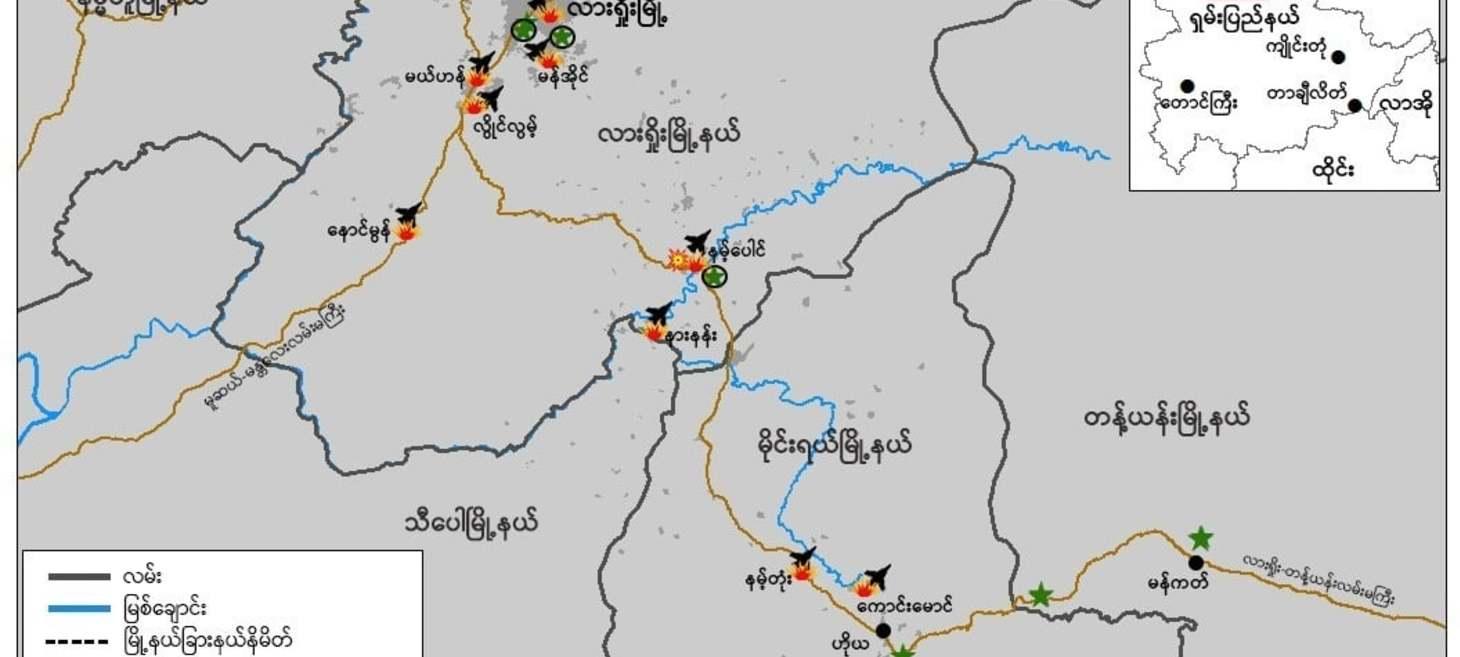
Shan NGO criticizes China for supporting Myanmar junta amid airstrikes on civilians
The Shan Human Rights Foundation and residents of northern Shan State have criticized China for not intervening to stop Myanmar's military junta from conducting airstrikes targeting civilian areas. They accuse China of remaining silent, pressuring anti-junta forces, and indirectly supporting war crimes by failing to act against the junta. The SHRF argues that China's inaction makes it complicit in the junta's crimes. Local residents urge China to protect its interests in Myanmar by preventing airstrikes rather than prioritizing its own interests. The situation highlights ongoing tensions between China's desire for stability in Myanmar and its reluctance to directly intervene in the conflict, while also facing criticism for its perceived support of the military regime.
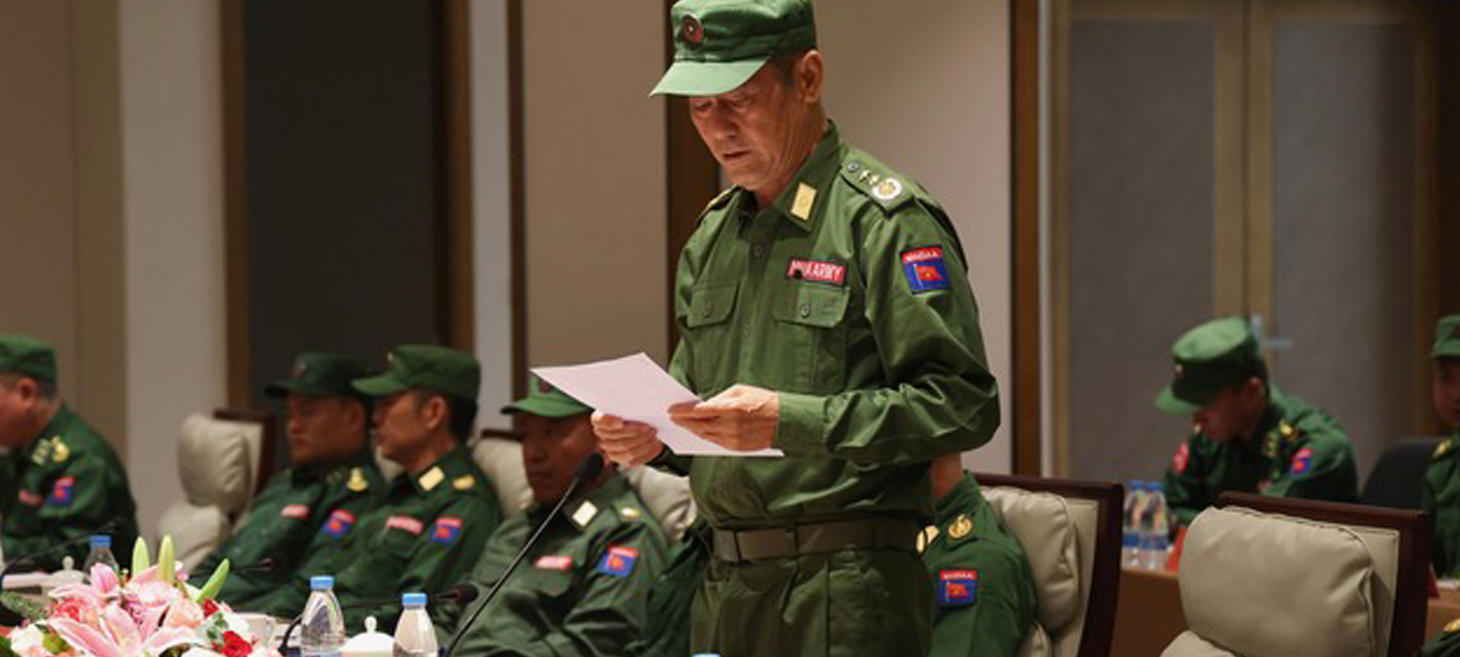
MNDAA Bans Members From International Talks
The Myanmar National Democratic Alliance Army (MNDAA) has prohibited its members from participating in international negotiations, signaling a shift away from diplomatic efforts. This decision comes after the MNDAA, along with other ethnic armed groups like the Ta'ang National Liberation Army (TNLA) and Arakan Army, were recently labeled as "terrorist organizations" by Myanmar's military junta. The designation bans membership and contact with these groups under the Anti-Terror Law. This move by the MNDAA reflects growing tensions and a hardening stance among ethnic armed groups against the junta, potentially complicating peace efforts in Myanmar's conflict-ridden regions.
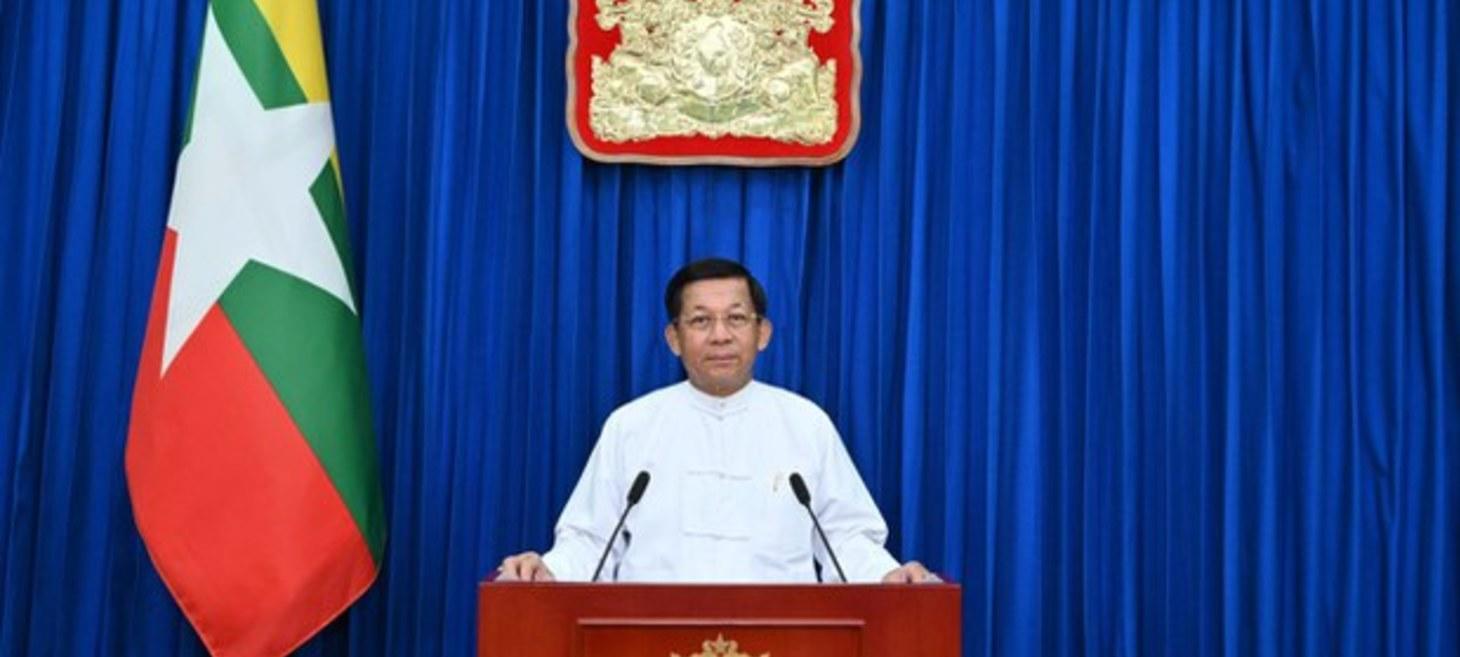
Myanmar’s coup leader touts peace on anniversary of failed ceasefire
Myanmar's military junta leader Min Aung Hlaing has accused ethnic armed groups of "destroying national peace" in a speech marking the 9th anniversary of the Nationwide Ceasefire Agreement. He urged rebels to engage in peace talks rather than using armed conflict, stating that wishes cannot be demanded through violence but only through dialogue. However, his appeal was swiftly rejected by several ethnic groups and the shadow National Unity Government, who view the junta as illegitimate and unwilling to genuinely address their grievances. This exchange highlights the ongoing deadlock in peace efforts and the deep mistrust between the military regime and ethnic armed groups in Myanmar.
Foreign Affairs
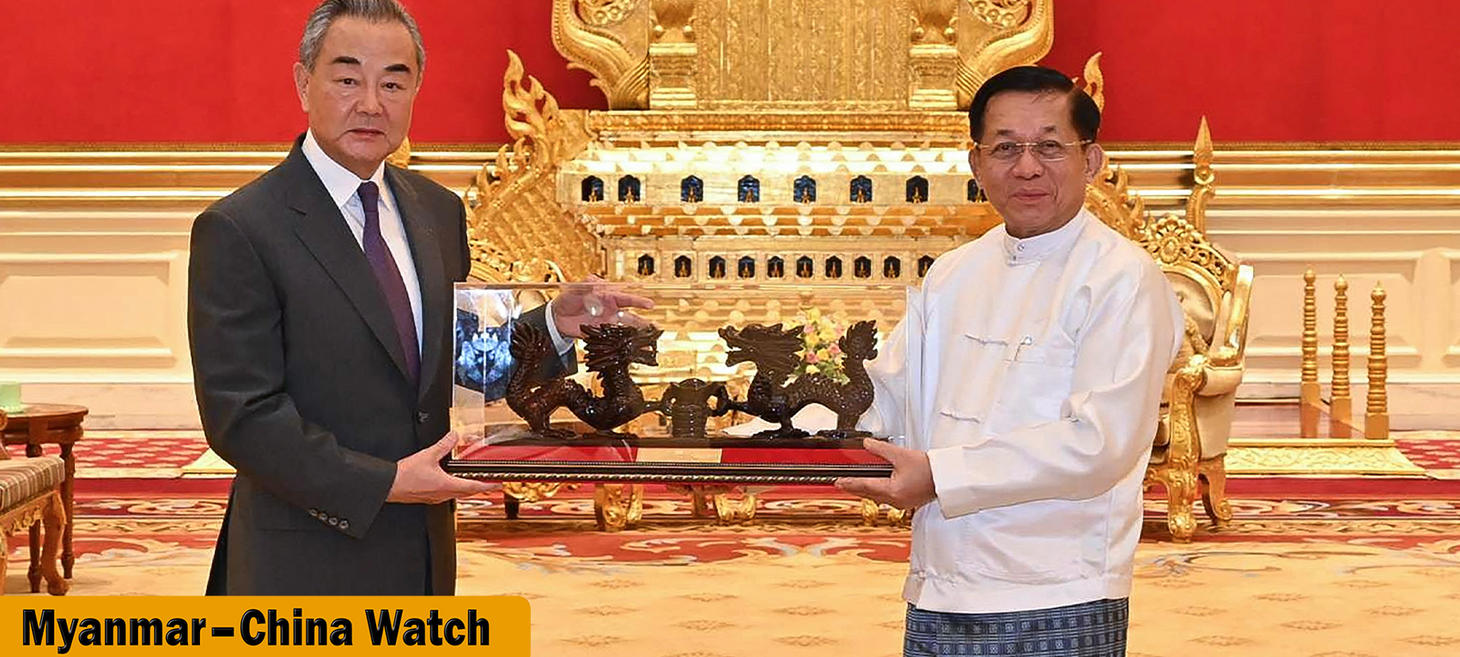
China Reportedly Planning to Welcome Myanmar Junta Boss
China is reportedly preparing to welcome Myanmar's junta leader, Min Aung Hlaing, for a visit this month, reflecting China's ongoing engagement with Myanmar's military regime. This visit underscores China's strategic interest in maintaining influence in Myanmar despite the junta's controversial rule and the ongoing civil conflict. China's approach has been characterized by a pragmatic engagement with the junta and resistance groups, aiming to safeguard its economic interests and ensure stability along its border. While China has not explicitly supported the junta, it continues to interact with various political and armed groups in Myanmar to protect its investments and citizens, indicating a balanced diplomatic strategy amidst the country's complex political landscape.
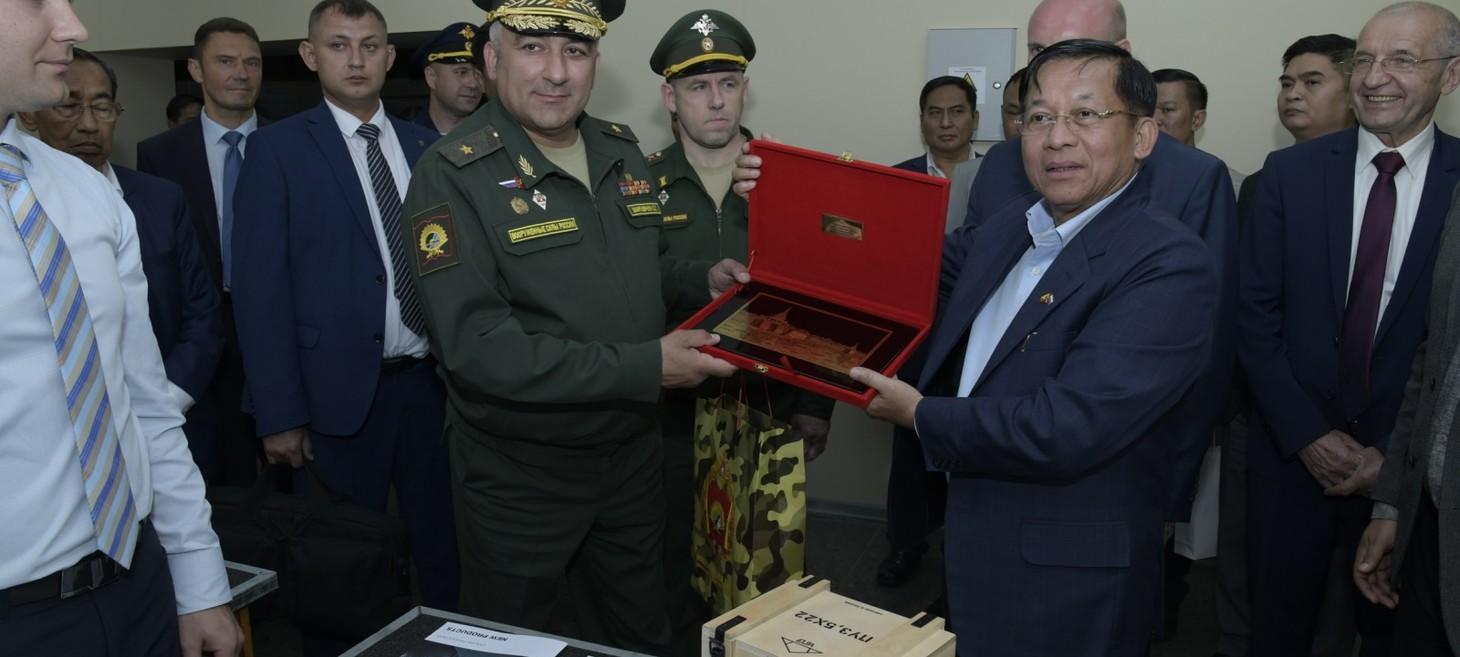
Myanmar junta officials offering Russian language training for civil servants
Myanmar's junta has initiated Russian language training for civil servants in select ministries in Naypyitaw, reflecting the regime's efforts to strengthen ties with Russia. The training, which began last month, is available to staff from the ministries of hotels and tourism and legal affairs, with plans to expand to other ministries. Participants are required to attend classes five days a week for two hours each session, with the ministries covering the costs of learning materials. This move is part of the junta's broader strategy to cultivate relationships with Russia, as evidenced by previous high-level visits and collaborations.

UWSA SUMMONED AND GIVEN CHINA’S POLICY DIRECTIVES: Propping up Myanmar military junta regime may be counter productive for China
China has openly demonstrated its support for Myanmar's military junta, known as the State Administration Council (SAC), following the February 2021 coup, as it seeks to end the conflict stalemate in Myanmar to its advantage. Initially, China attempted to mediate between the junta and the National League for Democracy (NLD), urging the junta not to dismantle the NLD. However, as the junta remained resolute in its stance against the NLD, China shifted its approach. By May 2023, China's support for the junta was made clear when then-Foreign Minister Qin Gang met with junta leader Gen Min Aung Hlaing, expressing China's hope for stability and development in Myanmar. Qin's statements emphasized respecting Myanmar's sovereignty, indirectly supporting the junta's rule and its plan to hold elections under the military-drafted 2008 Constitution despite widespread public opposition to military dictatorship.
Military
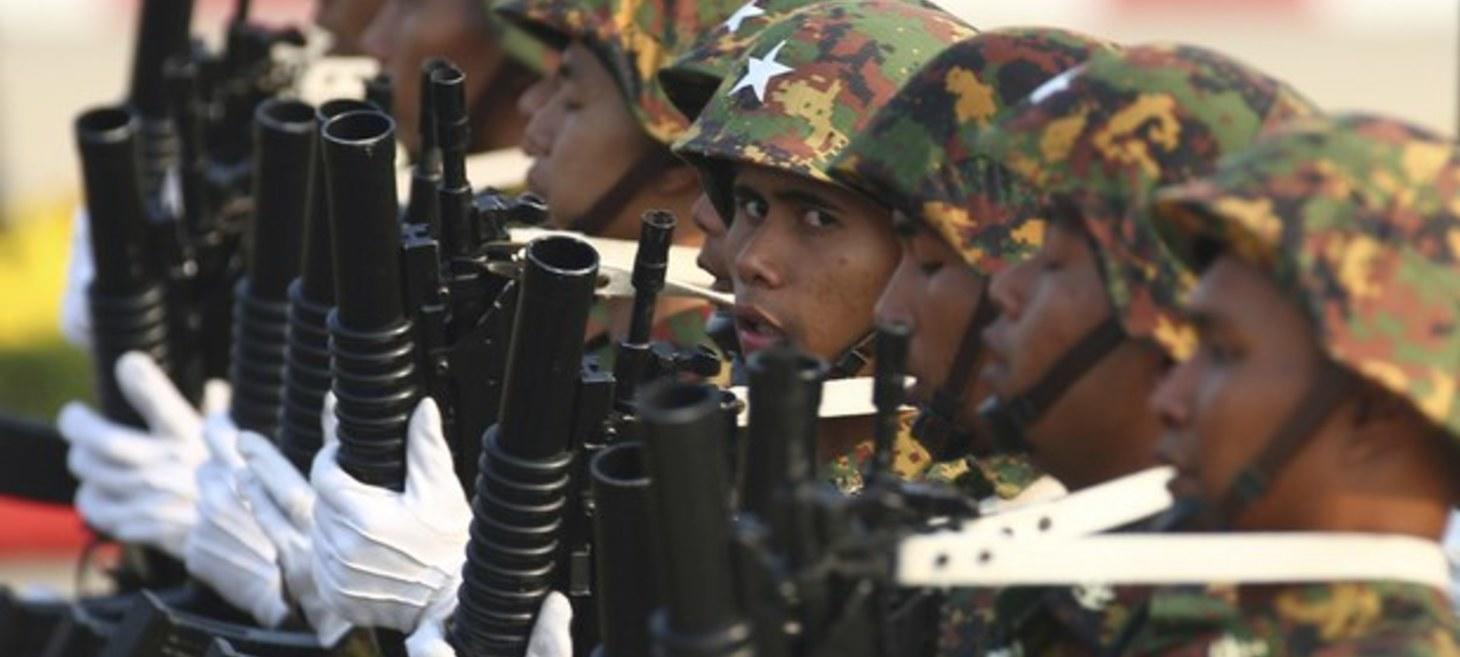
Where does Myanmar’s junta get its munitions?
Myanmar's military junta is relying heavily on domestic weapons production to sustain its ongoing conflict against opposition forces, according to defectors and analysts. The junta operates around 20 weapons factories, known as "Ka Pa Sa," which produce up to 50% of the military's munitions. These factories manufacture a wide range of weapons, including rifles, ammunition, artillery shells, bombs, and missiles. While some technology and components are imported from countries like China and North Korea, the junta has developed significant self-reliance in arms production. This domestic capacity has allowed the military to continue fighting despite international sanctions and arms embargoes. The weapons produced are being used in attacks on civilian areas, raising concerns about human rights abuses and war crimes.
Telecommunications

Myanmar Tied With China for Worst Internet Freedom
Myanmar and China are now tied for the worst internet freedom in the world, according to a new report by Freedom House. This marks the first time in a decade that any country has matched China's low score. Myanmar's internet freedom has progressively deteriorated since the military coup in 2021, with the junta imposing systematic censorship, surveillance of online speech, and widespread internet shutdowns. China has maintained its strict "great firewall" to control online content. The report found that internet freedom declined globally for the 14th consecutive year, with 27 countries experiencing deteriorations in online rights. This trend is concerning, especially as many countries are holding elections this year and a free internet is crucial for democratic processes.